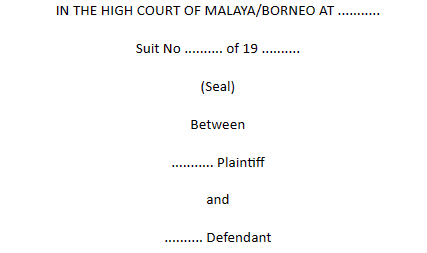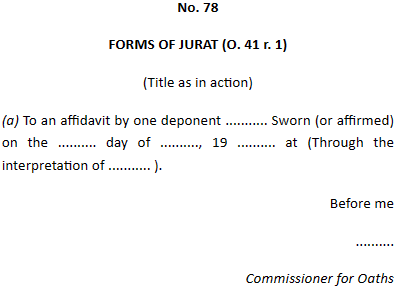Throughout my career, there have been a handful of judges that took a special liking to me for reasons unknown to me. By special, I don’t mean the good kind of special. It’s the other one, which was articulated through special treatment.
The first one I encountered was a senior session court judge at the Kuala Lumpur sessions court. I was no stranger to his court. I frequented the court as a pupil-in-chambers begging and cajoling lawyers to mention on behalf (MOB) to take judgment in defaults or attend to substituted service applications for my matters. The judge was generally grumpy and turned cantankerous if we didn’t know our file; but that one was fair enough lah. By the time I completed pupilage, I understood how his court worked.
But the treatment I received once I was a lawyer was something else. My first encounter with this occurred in my second or third month after being freshly called to the bar. It was my first case as a lawyer in his court. It was to take a judgment in default. I remember this incident vividly because it involved the High Court decision of Han Euu Tiam v Phang Kui Fatt & Ors [1999] 4 CLJ 395, which was decided on 18 September 1999. I was called to the bar just over a month before the case was decided. The relevance of this case will become apparent later.
As usual, that morning, I waited my turn as the judge went through the ‘mentions’ in the cause list. Mentions (now called case management) were court dates to deal with non-contentious and administrative matters with regard to our case, such as taking judgment in defaults, hearing simple uncontested applications, or for the court to give directions The idea was that these were matters so brief that required only a ‘mention’ in court, not a hearing or trial, which were comparatively elaborate affairs. The court usually attended to those after the mentions.
I absently mindedly and half paid attention to the cases before mine. It was business as usual. Lawyers were getting their orders for simple applications. Judgments in defaults were entered. I was relaxed and confident. I had read and checked my cause papers beforehand. They were straightforward judgments in default; about three or four. I had read and checked my cause papers to make sure everything was in order. That was the best way to avoid trouble, or so I thought.
When it was my turn, I rose to my feet and introduced myself. The judge suddenly took on a look of mischievous glee. He drew himself up in his chair. He couldn’t suppress a smile as he listened to me summarize the case, tell him the amount of the claim and told him when the summons and statement of claim were served. It was creepy. I ended with the usual flourish, ‘The cause papers are in order. I pray from an order in terms, Tuan Hakim.’
“No. I decline to enter judgment.’
I was, as I regularly found myself in my early years of practice, stunned. What? Why? I checked!
‘I am sorry, Tuan Hakim, is there a problem with the cause papers?’
‘Yes, counsel. Of course, there is. If not, I would have entered judgment as prayed for.’
‘Which enclosure is the problem, Tuan Hakim?’
‘Enclosure three. Your affidavit of service.’
I quickly arrived at my file copy of the affidavit and scammed through it to see what was wrong but saw nothing.
‘Do you see it, Encik Fahri?’
I looked back up puzzled.
‘I am sorry, I don’t see what the problem is. The averments are in line with what I told Tuan Hakim earlier. I would be grateful if you can enlighten me.’
‘This is not a law school, Encik Fahri. This is a court of law. But for your benefit, I will tell you. Go to page three. Look at the bottom. Do you see?’
‘I am sorry, Tuan Hakim. I am looking at it and still don’t see.’
He theatrically sighed heavily.
‘Your affidavit endorsement does not comply with Form 78 and Order 41 r 1 (7) and (8) of the Rules of the High Court (‘RHC’). Your affidavit jurat does not have a title. According to a recent High Court decision, Hann Euu Tiam, your affidavit is defective and should be struck out. Are you aware of this case?’
Hann Euu Tiam decided that if an affidavit’s jurat did not have the ‘(Title as in action)’ in it (see below), the jurat was not valid thereby rendering the affidavits defective and cannot be relied on. The title of the action looks like the following:

A jurat is a statement about where and when the affidavit’s deponent swore to the contents of the affidavit and before whom. The form to be used is as follows:

‘I am sorry, Tuan Hakim. I am not aware of the case and will certainly read up about it after this,’ I said as I frantically flipped through my rules to get to Order 41 RHC. I knew there was a curative provision somewhere. I had seen it before. ‘But if I may just point out one thing,’ I said with deliberate slowness as I scanned the provision with my copy of the RHC.
I found it and was delighted with myself.

‘Tuan Hakim, I refer you to Order 41 r 4 RHC. It says an affidavit may be used with the court’s leave notwithstanding any irregularity in form. I submit if there is any problem with the affidavit, it goes to form and not substance. I pray for leave to use the affidavit.’
‘Denied. You should have filed your application to regularize your affidavit and not ask last minute like this. In Hann Euu Tiam, the applicant’s last-minute application to use Order 41 r 4 RHC was rejected as well.’
‘But I didn’t know about this until Tuan Hakim told me about the alleged defect. And if I may, this is not an objection raised by any litigant.’
‘Yes, but it is raised by the court. So what do you want to do now Encik Fahri? Do you still want to proceed? Your affidavits are defective and should be struck out. I am bound by the decision.’
‘I am sorry Tuan Hakim. May I have another date to look into the case and do the necessary?’
‘Date!’ the judge declared and the interpreter gave me another mention date. He seemed pleased with his efforts.
‘Tuan Hakim, I have a similar issue with three other cases before you. [Reads out case numbers] I would like another mention date to sort out the affidavits of service there too. Thank you.’
‘Okay, same date for those three cases. Next.’
I eventually re-filed the affidavits of service for the matters and managed to get judgments in default at the next mention date. I made sure to incorporate the title of the action in the jurat for all the firm affidavits.
But after doing all that, he tripped me up again with the case of Mohd Nazir Badar Shair v Timbalan Menteri Dalam Negeri & Ors [2000] 2 CLJ 805 which was decided several months later on 24 March 2000.
The case of Mohd Nazir Badar Shair, also a High Court case, took a different view to Hann Euu Tiam about the need for the title of the action in the jurat. It decided that a jurat lacking the title of the action does not make the affidavit defective. But though it removed that requirement, it imposed a new and different one: an affidavit must be endorsed with the date of affirmation and filing and on whose behalf the affidavit is filed. If there was no such endorsement, the affidavit was defective and cannot be used without leave of court.
So one day after the decision of Mohd Nazir Badar Shair was decided, I was in his court to enter judgments in default. The judge insisted that my affidavits of service were defective for not complying with that decision. When I pointed out I had complied with the Hann Euu Tiam decision, he said he now preferred the Mohd Nazir Badar Shair decision to Hann Euu Tiam. So, again, I had to take another mention date to regularise the affidavits of service before I could take judgment in default.
That would be how it went down in his court with me. He constantly looked for ways to trip me up at every opportunity. Now I won’t have an issue with this if the same treatment I received was meted on the rest. I am all for equality of suffering. Misery loves company.
But everyone else seemed to get by without issue in his court save for me. I was frustrated. I chatted up lawyers in the courtroom and asked to see their affidavits and cause papers. Theirs were not different from mine. My jurat and theirs were the same. Our affidavit endorsements were the same. So why did I get singled out?
I never did find out why I was singled out for special treatment and frankly, I didn’t care. After a couple of years, it got so bad I stopped going to his court. He constantly found petty issues to pick with me to the point I felt my presence was counterproductive to our cases. My senior colleague, Rose, took over. For some reason, in his court, Rose walked on water while I was dragged through the Mariana Trench. So I was sure his behaviour was not a firm-related thing. It was a chemistry thing.
For all the logic, reasonableness and certainty the law is supposed to have about it, always remember the law is applied by humans, who more often than not lack all these qualities or at their height, attain them at best for a few hours a day. I am grateful that in my 20+ years as a lawyer, I can count those types of judges on one hand. But even then, it is too many by my count.
But as they say, haters gonna hate; best stay away and don’t help them masturbate.
Related Posts
- The Importance of Not Using Metaphors to Describe Symptoms
Once in my teens, I went to see my usual doctor, a general practitioner, in…
- The Secret to Extrinsic Success
Extrinsic success is the acclaim, awards and accolades society bestows on us. Or discretely purchase,…
- The Awful Need to Feel Productive
My own behaviour baffles me. For I find myself not doing what I really want…
- The Death Penalty
Are you for or against the death penalty? I have never liked that question because…
- Crafting Call to the Bar Speeches | Call Speech Series
I have moved pupils' calls to the bar since 2006, which was when I crossed…







